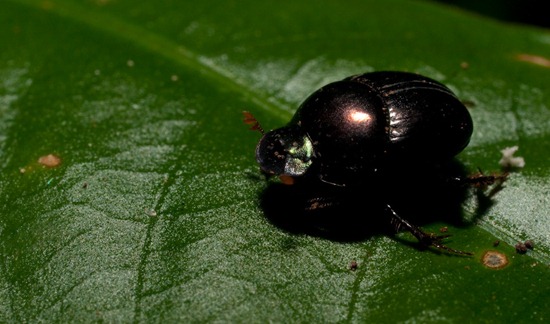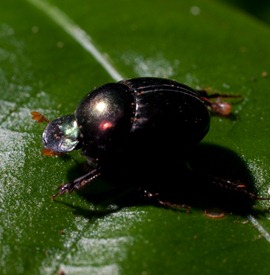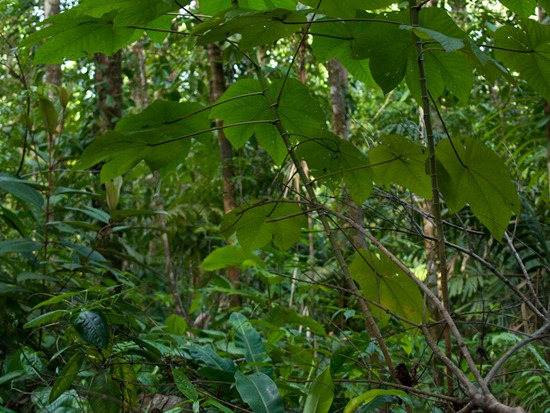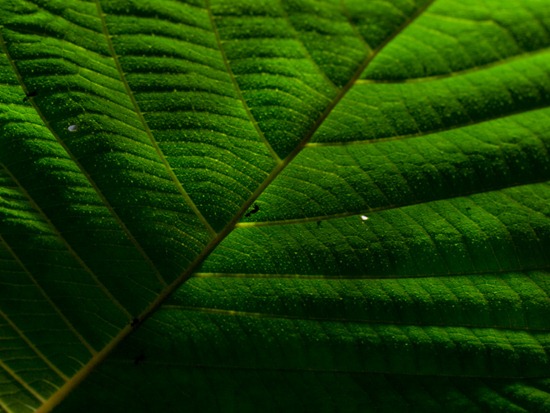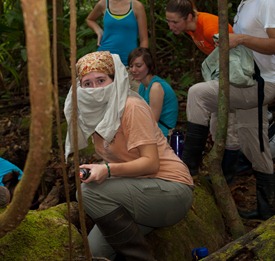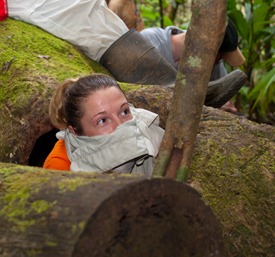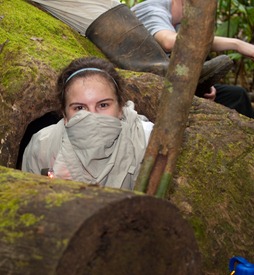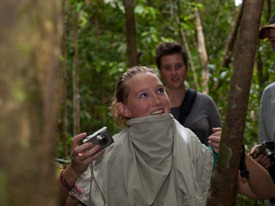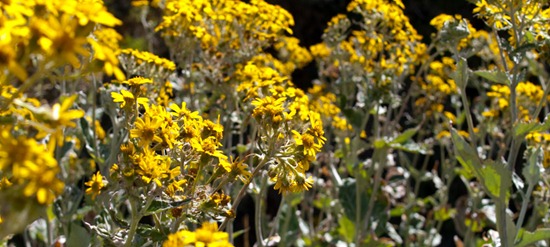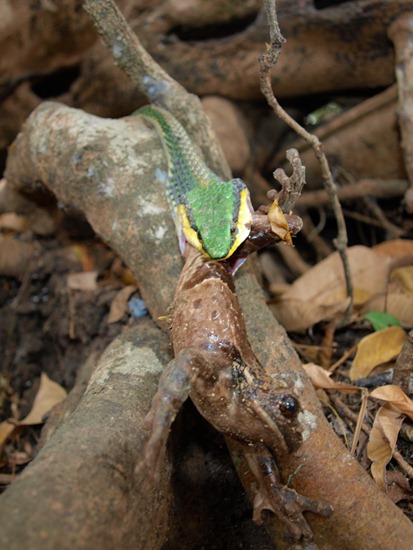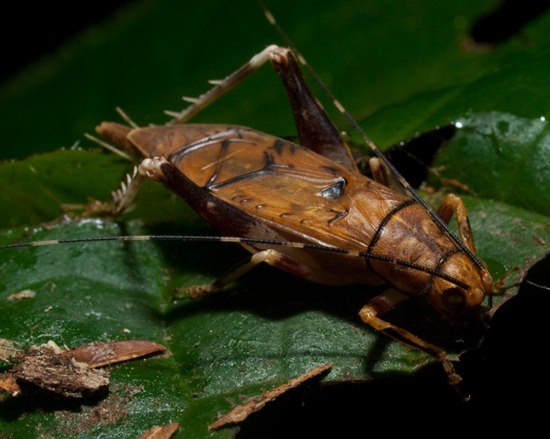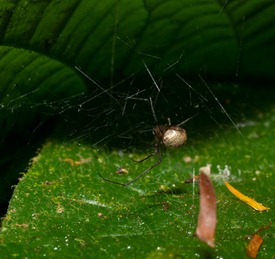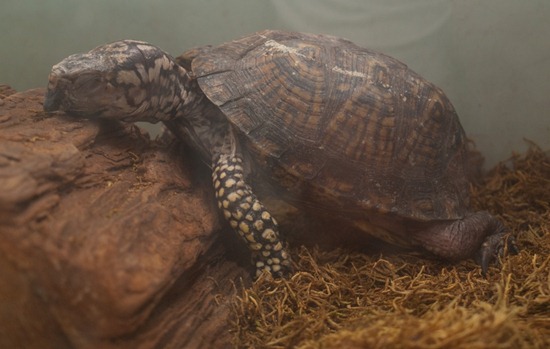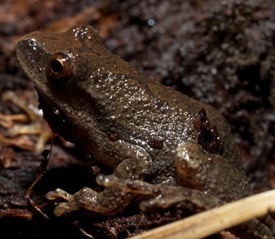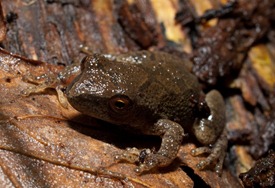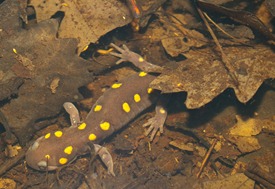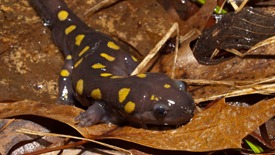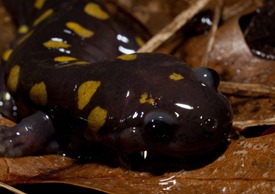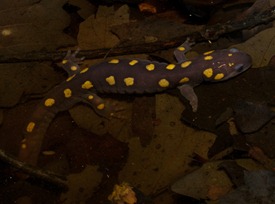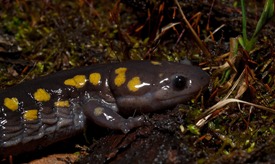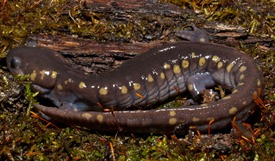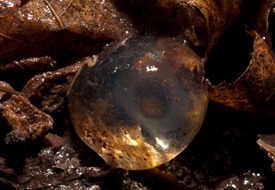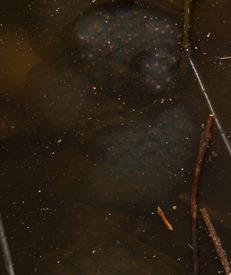Category Archives: Gallery
N. polylepis perch
This fuller frame of Cecropia includes a large male anole (N. polylepis) in the center of the photograph. I didn’t have a my telephoto lens at the time, so I just sat quietly and observed its display. Zack, a student in the Tropical Field Biology course, and I were also able to spot a red-capped manakin foraging near by, presumably on berries.
Cecropia
Bat root
Asters at Volcan Irazu
Well, I think they are asters….
In areas with relatively high altitude, plant communities in Costa Rica are quite similar to those found in Ohio. Many of the species found in these areas belong to the same genera that dominate plant communities here. For instance, Quercus-dominated (oak) forests are present just below the tree line in Costa Rican mountains. In fact, I believe there are just over 20 species of Quercus, and at least one of which is endemic (e.g., Quercus costaricensis). Vaccinium (blue berries) can also be found mountainous areas, but the berries aren’t quite as delicious.
Snake predation
In Palo Verde, a student noticed this Leptophis mexicanus preying on a tree frog (I think it’s Smilisca baudinii). This is the second time I was able to observe a Leptophis attack a frog, although this occasion was quite different, given that the snake had captured the frog by the hind legs; the frog made distress calls and the snake had some difficulty dragging and controling its prey.
Additionally, I’ve been feeding frozen rats to the two corn snakes I’ve recently inherited. Below is 1 (that’s its name) gulping down a rat.
 |
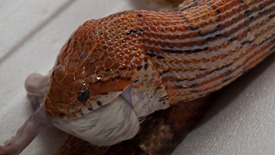 |
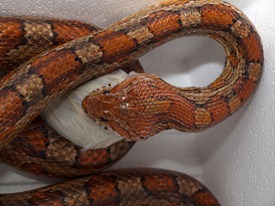 |
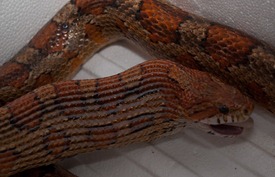 |
Banded Antennae
Rocky sleeps
Spring Peeper
Although there were a few instances when wood frog calls were heard, the only species of anuran we caught or saw at this week’s trip to Cuyahoga Valley National Park was Psuedacris crucifer. Unfortunately, the frogs did not seem to be as active or abundant this year as in the past, when we would regularly see peepers calling, wood frogs mating (even with green frogs), and hear little else than a deafening buzz of frog calls.
Spotted Salamander Hunt
Last Tuesday, several students, Doug, Nate, Dan, Allison and myself (totaling 15!) went to a secret vernal pool in Cuyahoga Valley National Park (well, maybe it’s not very secret) to observe spotted salamanders. We encountered plenty of spotted salamanders, a red-spotted newt, and spring peepers. It was an exciting night, and there were several enthusiastic photographers present (I think four people had dSLRs) so I hope to see some photographs other than my own.
Below are some spotted salamander pictures, posed and unposed.
We also found some eggs in and around the woodland wetland. There seemed to be two types: one type found under logs with more or less a single eggs surrounded by gelatin, and a second type in the water with many eggs encased in a single, gelatinous, cresent-shaped mass. Although I’m certain that the later are spotted salamander eggs, I’m unsure about the former, but I would still argue that they are Ambystoma given their size.

